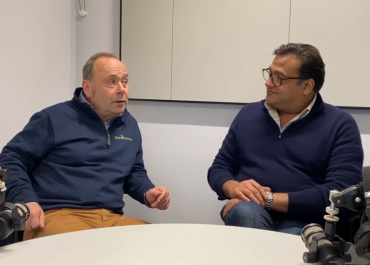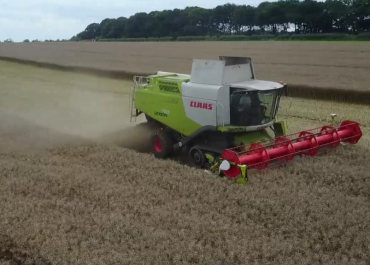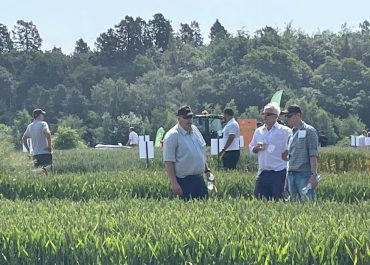Cereals 2023, the UK’s premier arable farming event, proved to be an extraordinary gathering of agricultural experts. Among the highlights of this year’s event was the presence of Tim Lamyman, a renowned figure in the world of agriculture. He shared his invaluable insights on how he achieved the world record for crop yields, and demonstrated the effectiveness of Bionature products in combating the notorious flea beetle.
Record-Breaking Crop Yields by Tim Lamyman
One of the most eagerly anticipated sessions at Cereals 2023 was undoubtedly the talk by Tim Lamyman, a name synonymous with record-breaking crop yields. With a career spanning decades, Tim’s expertise has made him a prominent figure in the agriculture industry. Tim shared his journey and the innovative products from Bionature that led him to achieve the world record for crop yields, setting a new benchmark for excellence.
Combatting Flea Beetle with Bionature Products
Flea beetles have been a constant menace to farmers, damaging crops and causing substantial economic losses. Fortunately, Bionature showcased innovative solutions to tackle this challenge head-on. Bionature products, featuring natural and environmentally friendly components, were demonstrated by Tim Lamyman to effectively combat flea beetle infestations.
Attendees witnessed live demonstrations of how Bionature products can be applied in the field. Tim’s practical expertise and hands-on approach provided a valuable learning experience for farmers eager to address the flea beetle problem while maintaining a sustainable and environmentally conscious approach.
These demonstrations served as a reminder of the importance of responsible farming practices that not only protect crops but also preserve the surrounding ecosystems.
The Future of Agriculture
Cereals 2023 was not only a platform for celebrating past achievements but also for looking to the future of agriculture. The event brought together farmers, researchers, industry experts, and technology innovators, fostering a collaborative environment for the exchange of knowledge and ideas. With sustainability and productivity at the forefront, Cereals 2023 demonstrated that agriculture is on the cusp of an exciting transformation, and there are many opportunities to create a more prosperous and sustainable future for the industry.
In conclusion, Cereals 2023 was a remarkable event, celebrating the accomplishments of Tim Lamyman in achieving record-breaking crop yields and shedding light on innovative solutions including Bionature products for combating flea beetles. The event underscored the importance of sustainable and data-driven agriculture practices while providing a platform for the agriculture community to come together and shape the future of the industry. It is an exciting time for agriculture, as it continues to evolve and thrive in the face of new challenges and opportunities.



